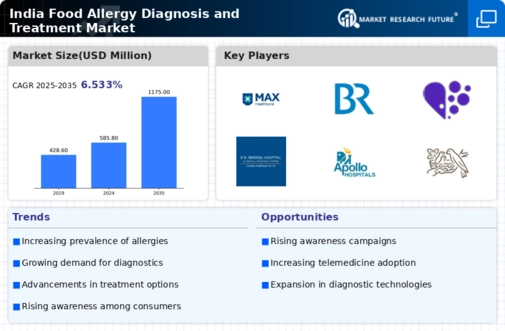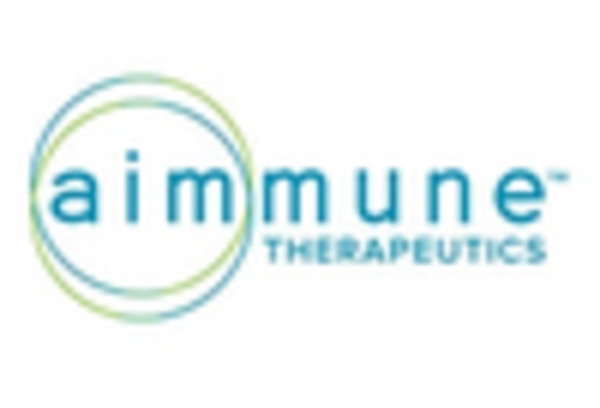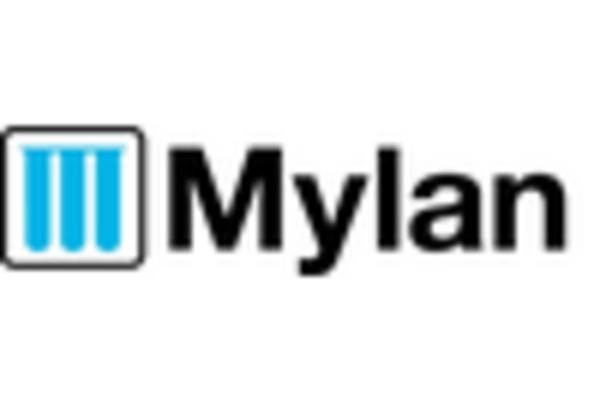Growth of Healthcare Infrastructure
The expansion of healthcare infrastructure in India is a significant driver for the food allergy-diagnosis-treatment market. With the establishment of more hospitals and specialized clinics, access to allergy testing and treatment has improved. According to recent data, the number of allergy clinics in urban areas has increased by over 30% in the last five years. This growth facilitates early diagnosis and effective management of food allergies, which is crucial for patient safety. Furthermore, the integration of allergy services into primary healthcare systems enhances the overall quality of care, thereby fostering a more robust food allergy-diagnosis-treatment market.
Government Initiatives and Regulations
Government initiatives aimed at improving public health and safety are influencing the food allergy-diagnosis-treatment market. The Indian government has implemented various policies to enhance food safety standards, which indirectly supports the diagnosis and treatment of food allergies. For instance, regulations mandating clear labeling of allergens on food products are becoming more stringent. This regulatory environment encourages manufacturers to develop allergy-friendly products and invest in research for better diagnostic tools. As a result, the food allergy-diagnosis-treatment market is expected to benefit from increased funding and support for allergy research, ultimately leading to improved patient outcomes.
Increasing Prevalence of Food Allergies
The rising incidence of food allergies in India is a critical driver for the food allergy-diagnosis-treatment market. Recent studies indicate that approximately 7.5% of children in urban areas are affected by food allergies, which is a notable increase compared to previous years. This growing prevalence necessitates enhanced diagnostic and treatment options, prompting healthcare providers to invest in advanced testing methods and therapies. As awareness of food allergies expands, families are increasingly seeking medical advice, leading to a surge in demand for specialized services. Consequently, the food allergy-diagnosis-treatment market is likely to experience significant growth as healthcare systems adapt to meet the needs of this expanding patient population.
Rising Demand for Personalized Medicine
The trend towards personalized medicine is reshaping the food allergy-diagnosis-treatment market. Patients are increasingly seeking tailored treatment plans that consider their unique genetic and environmental factors. This shift is prompting healthcare providers to adopt more sophisticated diagnostic tools, such as genetic testing and biomarker analysis, to identify specific allergies. As a result, the food allergy-diagnosis-treatment market is likely to see a rise in innovative therapies that cater to individual patient needs. This personalized approach not only improves treatment efficacy but also enhances patient satisfaction, driving further growth in the market.
Increased Research and Development Activities
The food allergy-diagnosis-treatment market is witnessing a surge in research and development activities, which is a vital driver for its growth. Academic institutions and private companies are increasingly focusing on understanding the underlying mechanisms of food allergies and developing novel diagnostic tools and treatments. Recent investments in R&D have led to the introduction of advanced immunotherapy options and innovative diagnostic tests that promise to improve patient outcomes. As the body of knowledge surrounding food allergies expands, the food allergy-diagnosis-treatment market is expected to evolve, offering more effective solutions for patients and healthcare providers alike.

















